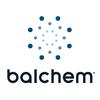Optimizing Post-Calving Care for Cattle: Ensuring Healthy Mothers and Calves
Published: August 28, 2023
Source : Dr. Divya Divakaran / Natural Remedy
Post-calving care for cattle is a critical phase in dairy farming that significantly impacts the health and productivity of both cows and their offspring. Proper care during this period is essential to ensure a smooth transition from pregnancy to lactation and to prevent potential complications. In this article, we will delve into the key aspects of post-calving care for cattle and why it is of utmost importance.
Understanding the Significance of Post-Calving Care
Calving marks the beginning of a new production cycle for dairy cows. It is a time when the cow not only gives birth to a calf but also starts producing milk for its nourishment. The transition from gestation to lactation is a complex physiological process that places significant demands on the cow’s body. Therefore, post-calving care is vital for several reasons:
1. Cow Health: The health of the cow post-calving directly affects its ability to produce milk and reproduce successfully in the future. Neglecting post-calving care can lead to health issues such as metabolic disorders, infections, and reduced fertility.
2. Calf Health: Healthy mothers are more likely to give birth to healthy calves. Adequate post-calving care ensures that calves receive the essential colostrum and care they need in their early days of life.
3. Milk Production: The post-calving period sets the stage for the cow’s milk production throughout the lactation cycle. Proper care during this phase can optimize milk yield and quality.
Key Components of Post-Calving Care
Clean and Comfortable Environment: Provide a clean and comfortable space for the cow to rest and recover after calving. Overcrowding should be avoided, and cows should be separated from the main herd if possible to reduce stress, especially for first-time calvers.
Nutrition: Ensure that cows have access to balanced and high-quality feed. There is often a reduction in feed intake around calving, so it’s essential to monitor and encourage feed consumption. A balanced diet will support the cow’s energy requirements for milk production and recovery.
Hydration: Clean, fresh water should be readily available at all times. Proper hydration is crucial for milk production and overall health.
Monitoring: Regularly monitor cows for any signs of distress or health issues. This includes observing their behavior, appetite, and overall condition. Promptly address any concerns or complications that arise.
Colostrum Management: Adequate colostrum intake is crucial for the calf’s immune system development. Ensure that calves receive colostrum from their mothers or high-quality colostrum replacers if needed.
Preventing Metabolic Disorders: Conditions like milk fever (hypocalcemia) and ketosis can occur post-calving. Proper nutrition and monitoring can help prevent these disorders.
Healthcare: Have a veterinarian on call for any post-calving issues that may require medical attention. This includes addressing conditions like metritis, mastitis, or retained fetal membranes promptly.
Record Keeping: Maintain accurate records of each cow’s calving date, calf health, and any health treatments administered. This information is valuable for tracking the health and productivity of your herd.
The Economic Impact of Post-Calving Care
Investing in proper post-calving care for cattle is not just a matter of animal welfare; it also has a significant economic impact. Healthy cows produce more milk and have shorter calving intervals, leading to increased profitability for dairy farmers.
In conclusion, post-calving care for cattle is a pivotal period that sets the stage for the overall success of a cattle operation. By providing clean and comfortable conditions, proper nutrition, and vigilant monitoring, farmers can promote the well-being of their cows and calves, ultimately leading to healthier, more productive herds and increased profitability.
Related topics:
Authors:

Recommend
Comment
Share

Would you like to discuss another topic? Create a new post to engage with experts in the community.









